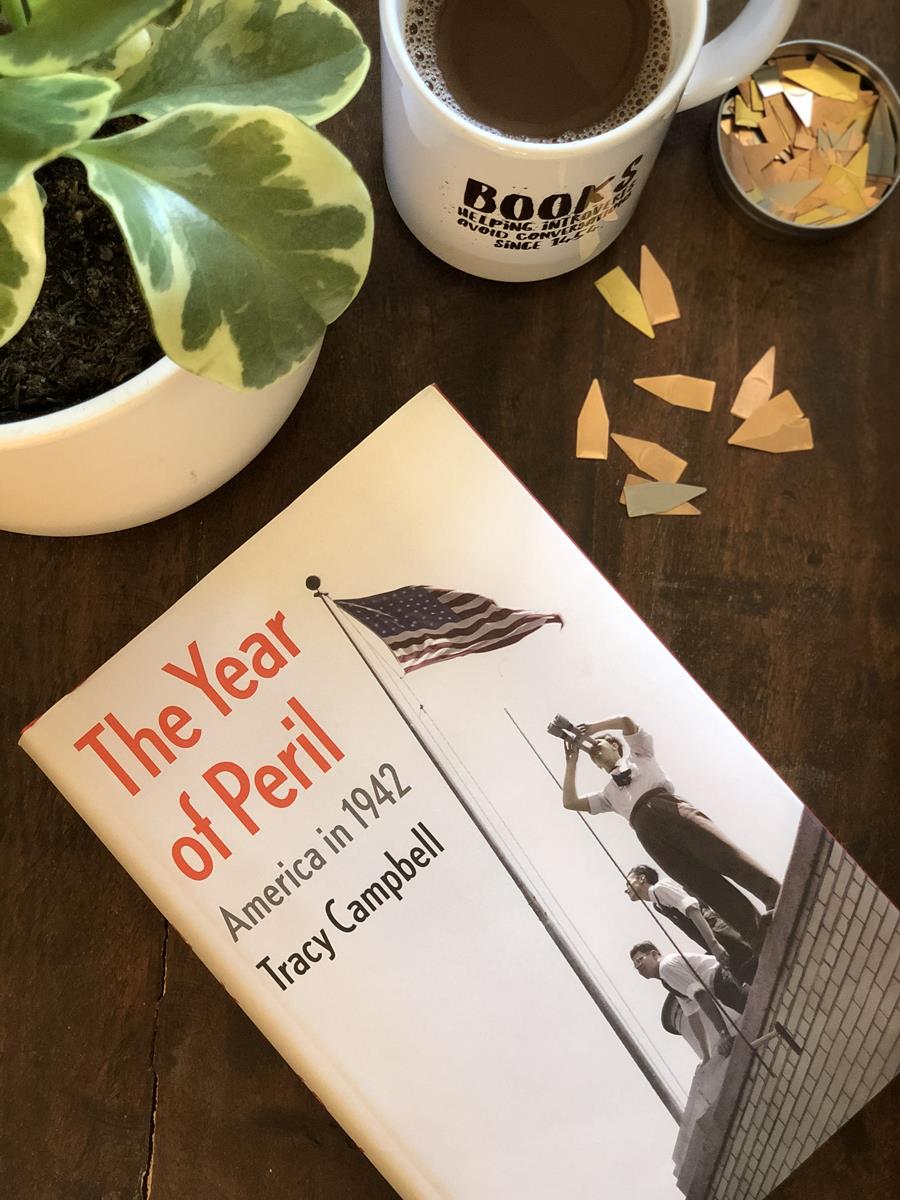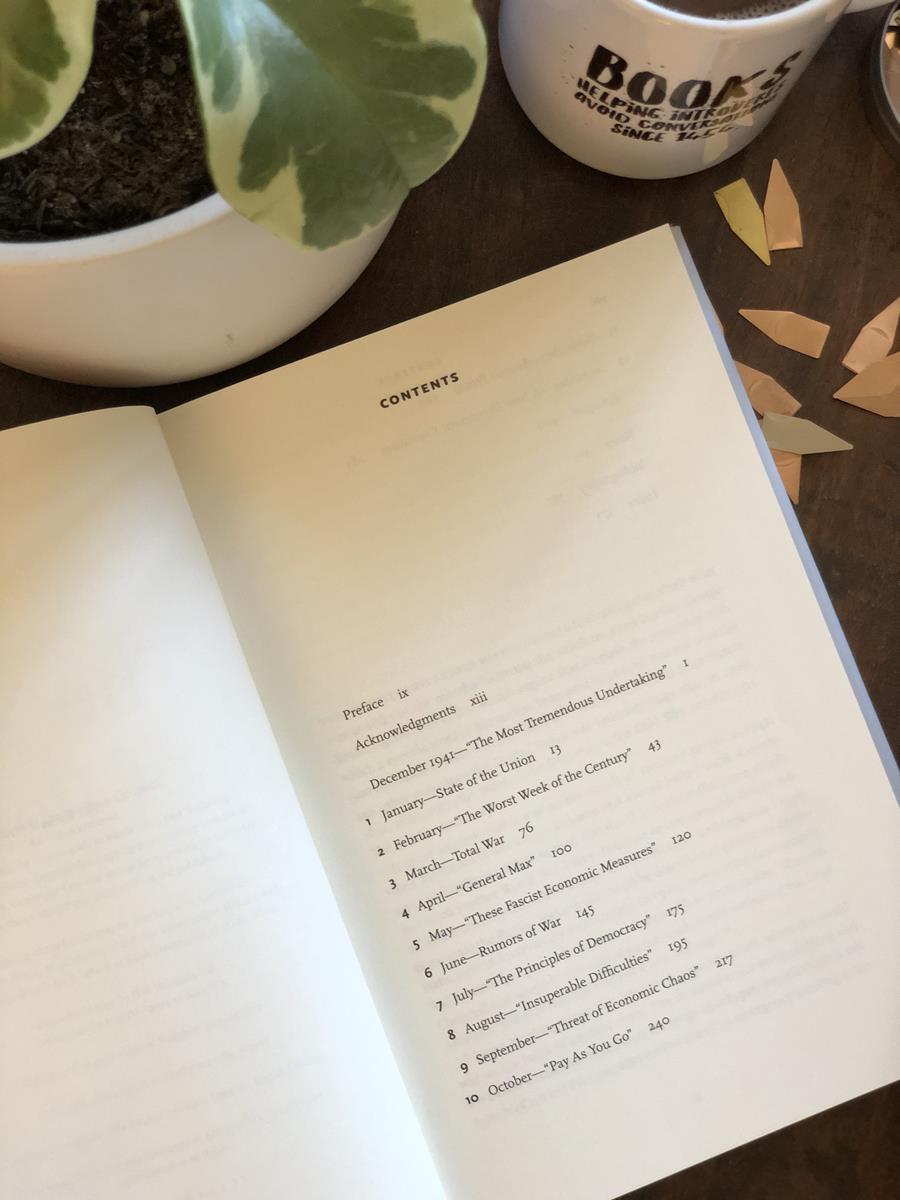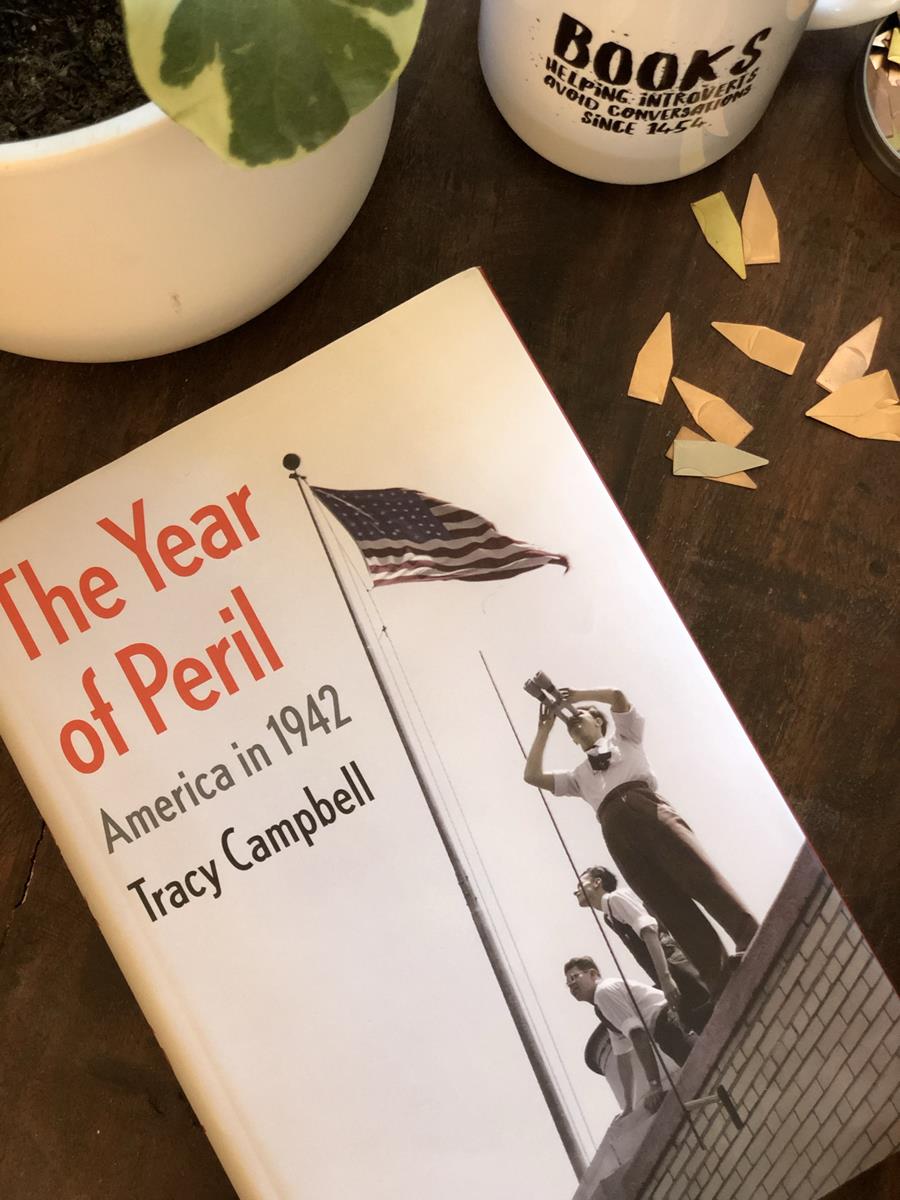The Year of Peril: America in 1942 by Tracy Campbell might be my favorite book of 2020. If not my favorite it was at least the book that made me think more than any other book that I read in 2020.

The Year of Peril: America in 1942
I could not stop thinking and talking about this book.
Why did it impact me so much? Because it was a reminder that not much has changed. We like to think that 2020 is a year like no other. In some ways it is, but in the majority of ways, it is not. In fact, America has been through far worse times than 2020.
The author says that he worked on this book for years. It’s 2020 release was very timely. I can’t think of a better time for this book to be released than in 2020.
This book follows America in 1942. Each chapter is a month of that year. It starts with the bombing of Pearl Harbor in December of 1941 and follows the U.S. over the course of the year that followed.
After reading The Year of Peril: America in 1942, I was reminded how much there is to learn from history.

We like to think of WWII as a time that Americans came together to fight for the greater good. In many ways, they did, but was America really as united as we like to think it was in the early days of WWII?
Have we forgotten what America was really like in 1942? Yes, I think we have.
From shortages to stockpiling, to the government restricting what we do, the realities of 2020 are not new. They were also happening in 1942.

What 1942 and 2020 Had In Common
Here are just a few things throughout the book that I found I could relate to 2020. This is not saying I agree or disagree with it. I am just realizing how much 1942 and 2020 had in common.
- In 1942, there was a rubber shortage. Some believed it was a real shortage and others believed it was a conspiracy. Tires and other items made out of rubber became hard to get.
- In 1942, when the government restricted certain things, essential works were allowed more freedoms. Many people were upset that they were not considered essential because they felt they were an essential worker.
- In 1942, pastors and clergy were one of the groups upset that they were not allowed more gas rations and exemptions when it came to the rubber shortage and tires. They considered themselves essential.
- In 1942, people stockpiled because they were afraid of shortages.
- In 1942, the government limited mileage for Americans in order to save and tire usage. Since it was hard to enforce, they encouraged Americans to do the right thing for the overall good of the country. Many Americans ignored the government’s efforts to save gas and tire use.
- In 1942, many restaurants had to close and some went out of business because of the food and coffee shortages.
- In 1942, there was racism. One example is that many White Americans were not willing to take blood donated by Black people.
- On January 20, 1942, Daylight Savings was signed into law. The effort to save electricity was very controversial.
- In 1942, politicians were photographed partying and vacationing after pleading with Americans to do more to economize in order to help the war effort.
- In 1942, the military complained that the overall fitness and education of Americans made many not qualify to be soldiers.
- In 1942, social networks and events were accused of spreading false information. (Totally different social networks than today but a very similar problem.)
- In 1942 and during all of WWII, many Americans did not support the war effort. Many were indifferent going about their everyday life. Others were hostile and very anti-war.
That is just a shortlist from the notes that I took reading this book. This book left me thinking about politics today and the politics of 1942. It also made me think about how the politics of 1942 impacted the politics of today in both good and bad ways.
A Fascinating Read
If you love history I think you will find The Year of Peril: America in 1942 by Tracy Campbell fascinating.
If you feel like the current times are like none other, I encourage you to read The Year of Peril. It is a reminder that a lot of things really haven’t changed.
America and Americans have survived things that are as bad, if not worse, than 2020. And we will probably survive much more in the future.
